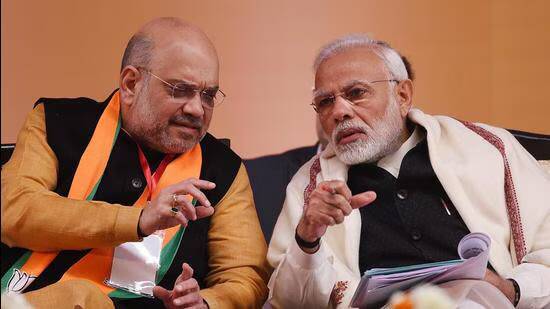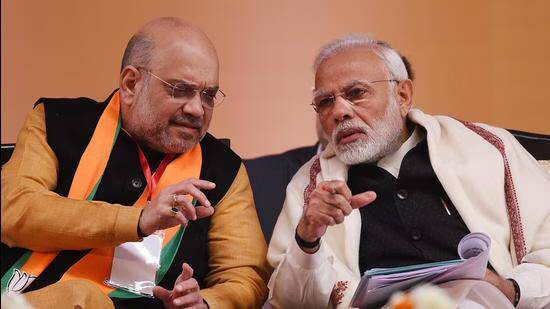
Stand & greet MLAs & MPs and listen to what they say: Maharashtra govt to employees
In a recent move, the Maharashtra government has issued guidelines to its employees, instructing them to “stand and greet” Members of the Legislative Assembly (MLAs) and Members of Parliament (MPs) when they arrive or leave government or semi-government offices. The guidelines also emphasize the importance of listening carefully to what these elected representatives have to say and using respectful, polite, and courteous language while interacting with them over the phone.
This move is seen as an attempt to promote a culture of respect and courtesy towards elected representatives, who are essentially the people’s representatives. The guidelines are applicable to all government and semi-government employees in the state, and are intended to ensure that these employees maintain a professional and respectful demeanor when interacting with MLAs and MPs.
The guidelines are quite specific, and instruct employees to stand up and greet MLAs and MPs when they arrive or leave government offices. This is seen as a mark of respect and courtesy, and is intended to create a positive and welcoming atmosphere. The guidelines also emphasize the importance of listening carefully to what MLAs and MPs have to say, and responding in a respectful and polite manner.
In addition to these guidelines, the Maharashtra government has also instructed employees to use respectful, polite, and courteous language while talking to MLAs and MPs over the phone. This is intended to ensure that employees maintain a professional and respectful tone, even when interacting with elected representatives remotely.
The move has been welcomed by many, who see it as an attempt to promote a culture of respect and courtesy towards elected representatives. However, some have also raised questions about the practicality of these guidelines, and whether they will actually lead to any tangible benefits.
One of the main concerns is that these guidelines may be seen as overly formal or rigid, and may not take into account the complexities and nuances of real-world interactions. For example, in some cases, employees may not have the time or opportunity to stand up and greet MLAs or MPs, particularly if they are busy with other tasks or responsibilities.
Another concern is that these guidelines may be seen as an attempt to reinforce a hierarchical or bureaucratic culture, where employees are expected to defer to elected representatives without question or critique. This could potentially undermine the autonomy and independence of government employees, and create a culture of sycophancy or obedience.
Despite these concerns, the Maharashtra government’s move is seen as a positive step towards promoting a culture of respect and courtesy towards elected representatives. By emphasizing the importance of respectful and polite language, and instructing employees to listen carefully to what MLAs and MPs have to say, the government is attempting to create a more positive and constructive dialogue between government employees and elected representatives.
Ultimately, the success of these guidelines will depend on how they are implemented and received by government employees and elected representatives. If they are seen as a genuine attempt to promote a culture of respect and courtesy, they may help to create a more positive and constructive atmosphere. However, if they are seen as overly formal or rigid, they may be met with resistance or skepticism.
In conclusion, the Maharashtra government’s guidelines instructing employees to “stand and greet” MLAs and MPs, and listen to what they say, are a significant move towards promoting a culture of respect and courtesy towards elected representatives. While there may be some concerns about the practicality and potential impact of these guidelines, they are seen as a positive step towards creating a more positive and constructive dialogue between government employees and elected representatives.




